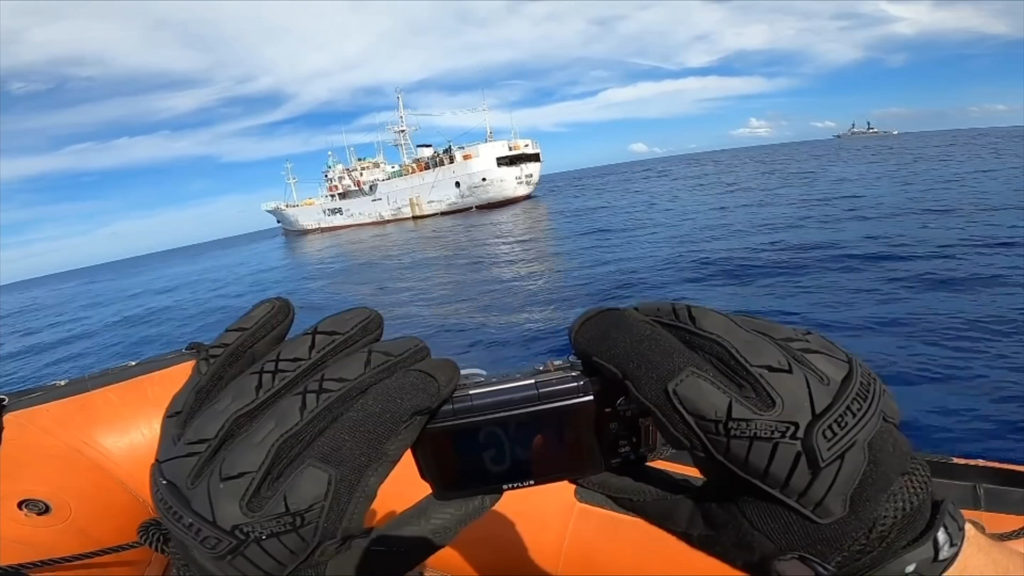
In a first for the country, Fisheries and Oceans Canada officers will be leading a mission in the Indo-Pacific to combat illegal fishing.
Starting Tuesday, officers will leave Sidney to lead a joint mission with U.S. Coast Guard members through the fall. Twenty-five people will be on board and out on the high seas until the fall.
“We’ll be going out thousands of nautical miles…that would be like a fisheries inspection mission to West Africa and launching it from St. John’s, Newfoundland. So we’re going very far from home,” said Heather McCready, the DFO’s director general of Conservation and Protection.
The mission — also known as Operation North Pacific Guard — will allow officers at sea to conduct patrols and onboard inspections to ensure vessels comply with international fishing regulations.
Canada is one of many countries with international agreements under Regional Fisheries Management Organizations. It’s estimated 1,200 vessels out at sea are from countries under that agreement.
If officers find a ship that is not compliant, evidence will be gathered and sent off to prosecutors in the country where the vessel is registered.
“We have to ensure that the response from the flag state is appropriate. If the flag state does not take appropriate action, we can, as a group of countries, ban the fishing vessel from fishing,” said Sean Wheeler, the DFO’s chief of International Programs.
In 2022, it was estimated that illegal, unreported, and unregulated fishing was a major cause of declining fish stocks. It also accounts for about 30 per cent of all fishing activity worldwide.
A second goal of this mission is to better understand what the high seas environment has on the migration and population of fish species of interest to Canada, like Pacific Salmon.
“We’ve been doing surveillance of the north pacific for over 30 years, but it wasn’t until 2019 that we gained the legal authority to get on board and look,” said Wheeler.
“We need to determine the extent of fishing before we can make a conclusion on how big and extensive salmon fishing might be.”
Wheeler hopes the data gathered will better help determine just how much the salmon population is affected by illegal fishing.
The mission is part of $46 million in funding from the Pacific Salmon Strategy Initiative over the next five years.




